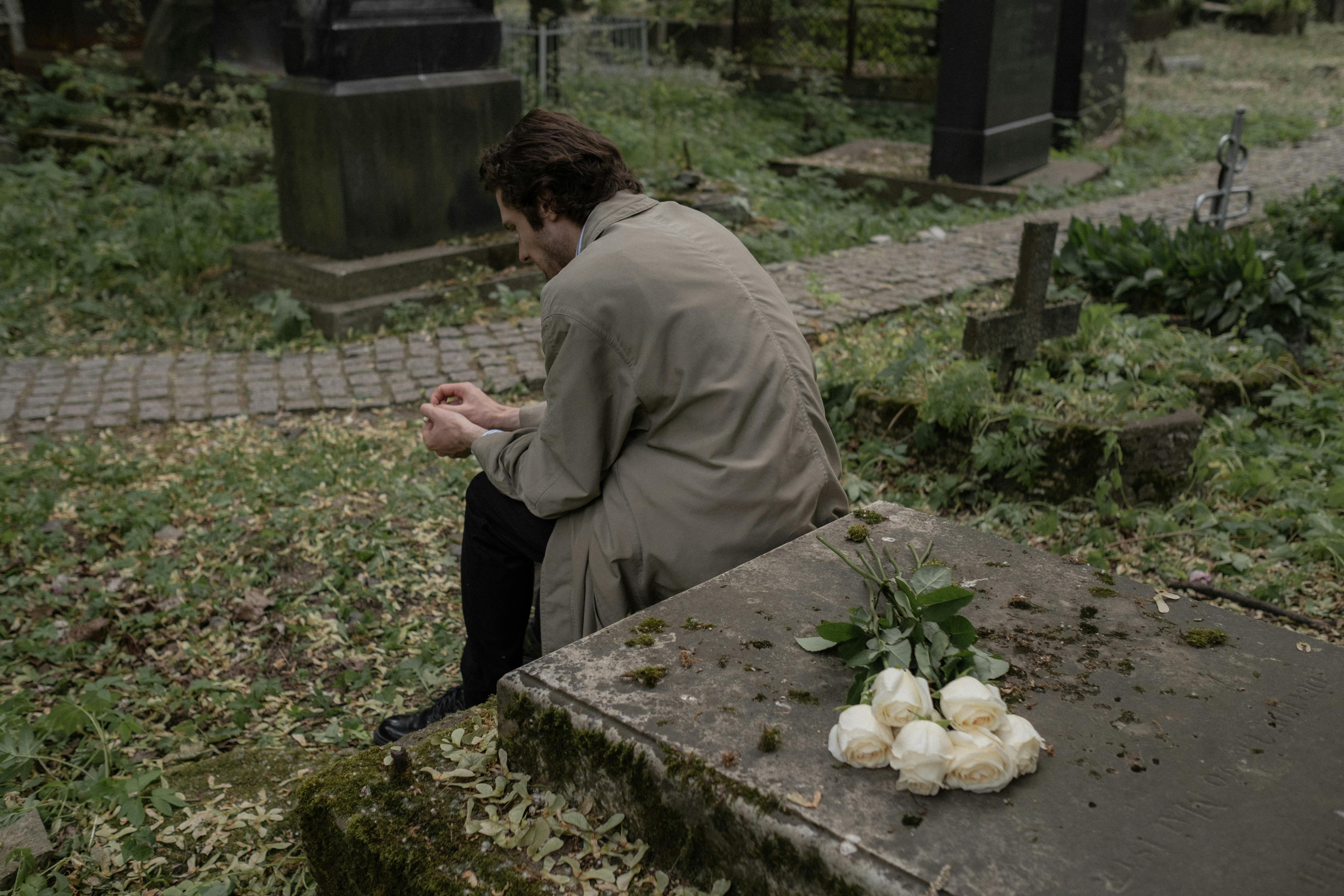Every story reveals both struggle and resilience. Here are the lessons families have shared, and that we hope can bring comfort and practical help to others.
The days after a funeral are difficult to describe. Many of your work and personal responsibilities start to resume, and yet, nothing seems familiar.
Families often describe this as one of the most confusing periods; you’ve just lost someone, but it feels like you’re expected to “start moving on.” That tension can turn ordinary moments into sharp reminders, whether it’s mail with a loved one’s name, a phone call that needs to be made, or an empty chair at the table.
Often, these are the instances where absence feels most real, and where the work of navigating life after loss truly begins.
Since joining Elayne, I’ve spoken with hundreds of families about what it means to step into that reality. Through these conversations, I’ve learned where families struggle most, and what they wish they’d known sooner.
I’ve also seen the many ways families adjust, not only by taking on unfamiliar responsibilities or leaning on one another for support, but also in how their relationships shift. Sometimes those changes bring people closer together, other times they create fractures. But, what I’ve noticed most is the resilience families show, even when the path ahead feels incredibly difficult.
More than anything, when I think about the families I’ve met, I’m grateful for the trust they’ve placed in our team. Their voices have shaped the resources we offer, and deepened our commitment to serving each person with empathy and care. By sharing what we’ve learned, my hope is that others can feel better prepared, less isolated, and more confident that there is a way forward, even after profound loss.
{{blog-cta-checklist-small}}
Families Are Complicated, Not Broken
Loss changes relationships. It can stir up old conflicts or bring people closer together, but it rarely leaves families the same. In many conversations, I’ve seen how grief magnifies the way people communicate, cope, and remember.
Recently, I spoke with a daughter who had just lost her mother. She had siblings, but the oldest sister claimed that “everything was hers.” Legally, that wasn’t true, and the estate had to be divided equally. As painful as that situation was, the deeper wound came from feeling that her mother’s memory was being overshadowed by conflict.
I also remember a very different story, one that showed how resilient families can be. A young husband lost his wife during childbirth, only minutes after their baby was born. His siblings rallied around him in extraordinary ways. On our calls, one would take notes, another would hold the baby, and together they shared the responsibilities so that he could grieve, care for his child, and begin to process the loss. With support from Elayne, the family was even able to stop a fraud attempt and quickly get everything under control.
In the instances where things take a negative turn, it can make people wonder if their family is falling apart. In reality, every family feels the strain of loss. Often, what seem like conflicts are actually expressions of care, with everyone trying in their own way to honor the person who passed.
Recognizing this helps families approach the process with more compassion for themselves and each other. Small steps, like sharing responsibilities more evenly or allowing space for different ways of grieving, can make a big difference. Over time, it becomes easier to move forward with more understanding, patience and mutual respect.
Grief Isn’t Linear
Grief doesn’t move in a straight line. It bends, circles, and doubles back without warning. Support has to be able to adapt to those zig-zags, and meet people where they are.
I’ve spoken with families who managed legal meetings, but broke down when a letter with their loved one’s name arrived in the mail. I’ve worked with people who carried the full weight of funeral planning by themselves, but felt overwhelmed by the finality of closing a bank account. These experiences are a reminder that the hardest moments are not always the ones we expect. Often, what looks routine can carry deep emotional meaning.
It's the reason we never ask a family, “How are you?” but instead, “How are you today?” Grief changes by the hour, and what seems impossible one day can feel manageable the next.
I remember a client who asked several times to reschedule our calls. She wasn’t ready to discuss estate settlement yet, and each time I assured her that it was okay, and that we completely understood. One afternoon, she let me know that she was having a better day. It didn’t mean everything was suddenly fine, but that she felt able to take a step forward. Together, we used that opening and notified the IRS of her father’s passing.
For our team, the goal is never to measure progress by how quickly a family moves through a checklist. It’s to make sure that families have the support they need when action is possible, and reassurance when they need to pause. To know that they’re not alone, and that we’ll be here whenever they’re ready.
Common Misunderstandings
A major source of stress for families comes from the lack of clarity around certain terms and processes. In particular, these are the areas where we’ve seen the most confusion:
- Wills. They’re not always the final word. Many are outdated, incomplete, or written in ways that leave room for questions.
- The meaning of “estate.” It’s not exclusionary or a measure of wealth. It simply means everything someone owned, from bank accounts to personal belongings.
- Rights as next of kin. These are not always clear. Families are often unsure which actions they can take on their own and which require formal approval.
- Probate. It’s not automatic. Depending on the assets involved, some estates go through court while others can be settled more simply.
- Beneficiaries named on accounts or insurance policies. They usually take priority over what’s written in a will.
- Power of Attorney. It ends at death. Families often assume it continues, but authority to act changes once the principal passes.
- Debts. In some cases, they must be paid from the estate before anything can be distributed.
Each misunderstanding adds pressure to an already difficult process. Support in these moments is about providing clear explanations, giving families the confidence to act, and the awareness to know when help is needed. In our view, reliable information does more than answer questions. It helps create a sense of stability, and reminds families that no matter how difficult the road ahead looks, there is always a path forward.
Lessons That Families Share
In nearly every conversation about estate settlement, families mention things they wish they’d known sooner. Some of the most common topics include:
- Keeping financial details in one place. Missing account numbers, policies, or passwords can lead to weeks of back-and-forth with banks and insurers. A single, organized folder or digital file can prevent those delays.
- Updating or creating a will. Without one, state rules decide how assets are divided, which can force families into probate. A valid, up-to-date will helps ensure that your loved one’s wishes are honored.
- Planning for slow timelines. Agencies like Social Security or the DMV can take a while to process requests. Knowing this helps families manage expectations and follow-ups.
- Ordering extra copies of key documents. Banks, insurers, and government agencies may need multiple death certificates. Having several copies available helps avoid repeat trips and added costs.
- Managing mail. Credit card offers, statements, and notices keep arriving after a death. Redirecting or sorting mail weekly prevents important items from getting lost in the stack.
- Assigning responsibilities. When no one is clearly in charge of bills, claims, or paperwork, these items can get overlooked. Agreeing on roles early keeps families coordinated and on track.
The practical side of loss will never be easy. But it becomes more manageable when you know what to expect, and have the right tools in place.
For our team at Elayne, I can’t overstate how thankful we are to the families who’ve entrusted us with these lessons. Their willingness to share hard-earned wisdom means that more families will be prepared to face the challenges ahead. By imparting what they’ve learned, they’re turning difficult experiences into guidance that brings comfort, strength, and hope to others.
How Families Have Shaped Elayne
Every improvement in our platform begins with families. A frustration they voice, a need they raise, or an idea they offer becomes the spark for making estate settlement simpler.
For example, many families rely on a mobile device to handle the settlement process, so we ensured that everything we do works well on cell phones.
They mentioned how confusing official requests can be, which led us to create entire sets of guides and scripts. A client in Wisconsin shared that after her mother died, she got a letter in the mail that looked like a bill. It ended up being a note from the doctor’s office, but the wording was extremely difficult to understand.
Families also explained that long lists felt overwhelming, so we designed our platform to excel at highlighting one step at a time. And when they said that text messages were a more convenient option than calls or emails, we added texting as a way to keep in touch with our team.
Each of these changes began with a conversation. Families trusted us to listen, and their feedback became the blueprint for real solutions. Their voices are woven into every part of Elayne, and allow us to build a platform alongside the people we serve. Honoring that partnership is what keeps us learning, improving, and able to walk alongside families through every challenge.
{{blog-cta-checklist-large}}
Closing Reflection
After more than a thousand conversations, I’d say this is the most important lesson I’ve learned: families don’t expect the settlement process to be perfect, but they do need it to be clear and compassionate. They need support that guides them through the practical details, and helps makes space for reflection and healing.
Each story adds to our understanding, and every lesson becomes part of how we support others. The road after loss is never simple, but it can feel less overwhelming when there are reliable tools and people you can lean on.
At Elayne, we owe everything to the families who’ve trusted us with their experiences. They’ve shaped virtually every aspect of our service, and make our work possible. Because of them, we believe more strongly than ever that even in the hardest chapters, it’s possible to find support, regain hope, and keep moving forward.


















































